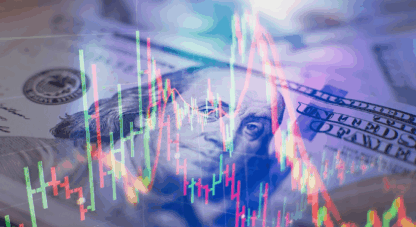“The grave; the barren womb; land, which is never satisfied with water; and fire, which never says, ‘Enough!’ All these things, Solomon tells us, never have enough. He left out billionaires and politicians. Oh, wait. He didn’t: “The leech has two daughters. ‘Give! Give!’ they cry.”
Money and power are the gods of the former; power and money, the latter. The two groups have amassed immense amounts of both at this point, but not enough. Chroniclers do not call them totalitarians for nothing.
This is not a screed, however. There is a point to this language far beyond acrimony or incrimination. (And just for the record, there are notable exceptions in both groups mentioned above.)
When the nature of being is misunderstood, the understanding of beings is likewise off. And there is nothing so lacking in politics right now as knowledge of human nature (except knowledge of man’s maker, which, though more important, is not the subject of this narrative).
The poor in America who believe rich socialists will honor their promises to give them huge benefits are wrong. They won’t—at least not without strings. Any “freebies” they get will cost them their freedom, and possibly their lives.
And conservatives think socialists will have enough money and power at some point because that’s how conservatives think (most middle-class conservatives can be content with enough, and they project just as readily as liberals do). But they’re wrong, too. See the first two paragraphs above.
So what’s the point in all of this? The point is that billionaires’ and politicians’ power and money come from other people, so that’s the target. And in case you weren’t certain, that would be you and me.
Will they be successful? No human knows. We’ve all seen horrible storm clouds that were full of sound and fury but signified nothing. We’ve also seen terrific storms that were entirely as advertised—or even worse.
And just for the record, it’s only human nature to hear repeated warnings about such things as irksome and tiresome. Just ask your children. The analysts below have been observing behavior in politics and economics for many decades—behavior that is immoral and short-sighted, and can’t possibly end well. Few analysts who understand how bad the behavior is expected the consequences to be delayed as long as they have.
But here we are, many decades later than most such analysts expected comeuppance to come up. Still, the rich and powerful party on. They pursue their goals relentlessly, and they never tire or give up. In fact, they redouble their efforts, and they get richer and more powerful.
As you’ll see in the synopsis of this week’s McAlvany Weekly Commentary below, people who on 9/11 listened to the established authorities died. Those who listened to a man who was prepared for the disaster that day lived. Doubtless, the drills he put them through leading up to that fateful day seemed irksome and tiresome. But when crisis came, they walked away from an event that killed over 3,000 people.
A word to the wise is sufficient.
Key Takeaways:
- Listen to people who are experienced at what you’re going through
- Harry Truman would be disappointed—no one-armed economist here
- Gold soars as markets struggle
- Deflation ahead?
The McAlvany Weekly Commentary: 9-11: The Memory & The Forgetting
As a well traveled and widely experienced financial and economics analyst, David has often had a personal connection to the events he analyzes or persons he interviews. Such is the case this week as he and Kevin recall the horrific events of September 11, 2001. David had completed training in the twin towers shortly before they were destroyed, and had visited the South Tower even more recently. David brings to our remembrance a hero of the day whose selflessness and ability to think beyond platitudes and normalcy bias saved the lives of 2,700 people—unfortunately excluding his own as he went back into the inferno to save 14 more. All of those people had been told to remain calmly at their desks and wait for the experts to restore normalcy. Had they obeyed, they all would have died. People who fare well in normal times often fail entirely in times of crisis. Not Rick Rescorla—the hero just described. He had trained in crisis and combat, and kept himself in constant readiness through rigorous preparation for the unexpected. Fortunately, the 2,700 listened to the right voice that day. The hosts compare such calm, competent, others-oriented action to what’s going on in the lead-up to the election in America, and call for similar attributes in conducting substantive debate and interaction today—a little R-E-S-P-E-C-T (with apologies to Otis Redding). The hosts then turn to the economy and note that strong indications of recession are appearing or are well under way. They explain the yield curve and the implications of its inversion and subsequent uninversion—both of which have now occurred—with regard to recession. The Sahm Rule, expectations of small business owners, jobs reports, and much more all indicate that the immediate future might not be bright on the economic front. Upshot: if things get bad, listen to people who have prepared for bad times, not people who are prepared only for good times or for normalcy.
Credit Bubble Bulletin: Validating the Bubble Thesis: Q2 2024 Z.1
Doug begins this week by providing data to illustrate the extent and depth of the “extraordinarily unstable market environment.” Indeed, the ups and downs are notable. Major currencies are up significantly against the dollar, America’s corporate debt market is overheated, and Treasury trading was up 19% m/m to a record $1.01 trillion. This is all in the run-up to an FOMC meeting in which interest rates are expected to be cut by either 25 or 50 bps. In possible consequence, gold is up 3.2% over the week to a record high $2,578—or 25% for the year so far. Other metals, precious and otherwise, are similarly up—several significantly more than gold. In short, it’s been a wild ride. Even more importantly, such events likely don’t portend better things to come. Given his well-founded concerns about bubbles, Doug points out that any cut in interest rates at all is ill-advised. In that light, he feels that the cut will likely be only 25 bps. He also points out signs of continued strength in the economy despite all of the foregoing. Labor power, jobs numbers, GDP, and housing data all reflect strength. He notes that, “There are two discordant perspectives for viewing the Q2 Z.1 report,” and proceeds to provide data supporting both perspectives.
Hard Asset Insights: No Wonder Gold is Flying
Morgan focuses on the upcoming FOMC meeting where the question remains 25 or 50? By how many basis points will the Fed cut interest rates? The market is betting on 50, but Morgan thinks it excessive for conditions. He cites expert opinion from persons influential in the matter, and even they seemed divided (sometimes with themselves). Ironically, the consensus seems to be that though the party is well along and its participants nearly four sheets to the wind, the best thing to do now is put out some more punch. It might not be as strong as before, but—hey—at least it forestalls a painful return to reality. “The implication is clear. In HAI’s view, whether the Fed cuts 25 or 50 basis-points next week, and regardless of inflation, the labor market, or [ostensible Fed mouthpiece] Nick Timiraos’s latest whisperings, the likely path for the Fed funds rate is lower, and probably ultimately lower than most expect.” Is it any surprise that gold is at all time highs? In Stephanie Pomboy’s colorful words, ““holy budget deficit, Batman!… No wonder gold is flying.”
Golden Rule Radio: Shining Prospects for Gold and Silver
Following Miles’ recap of the precious metals, stock markets, and dollar index, Rob takes a few minutes to bore down into the silver and copper markets. He notes that the silver:gold ratio is now at nearly 88:1, and he expects it to go much higher, to perhaps 100:1 in the near future. This is key information if you are a gold owner who trades the ratio between these two metals. Rob also believes that we are transitioning from a period of stagflation to a short time of deflation over the next few months in certain markets. Commodities such as copper, silver, and oil could soften from here, resulting in that widening of the silver:gold ratio. Tory adds further insight, noting that outlier ratios are what make the strategy work. He also brings attention to palladium, which has been heading up strongly over the past week. Miles puts copper and oil in perspective, given that both have had very strong years thus far and have plenty of room to pull back. Silver hasn’t risen as much relative to its historical range, but will also likely have some downward pressure on it. The hosts are careful to mention that this deflation is limited in scope and time, and will not significantly affect the inflationary environment in which most consumers live and work.















